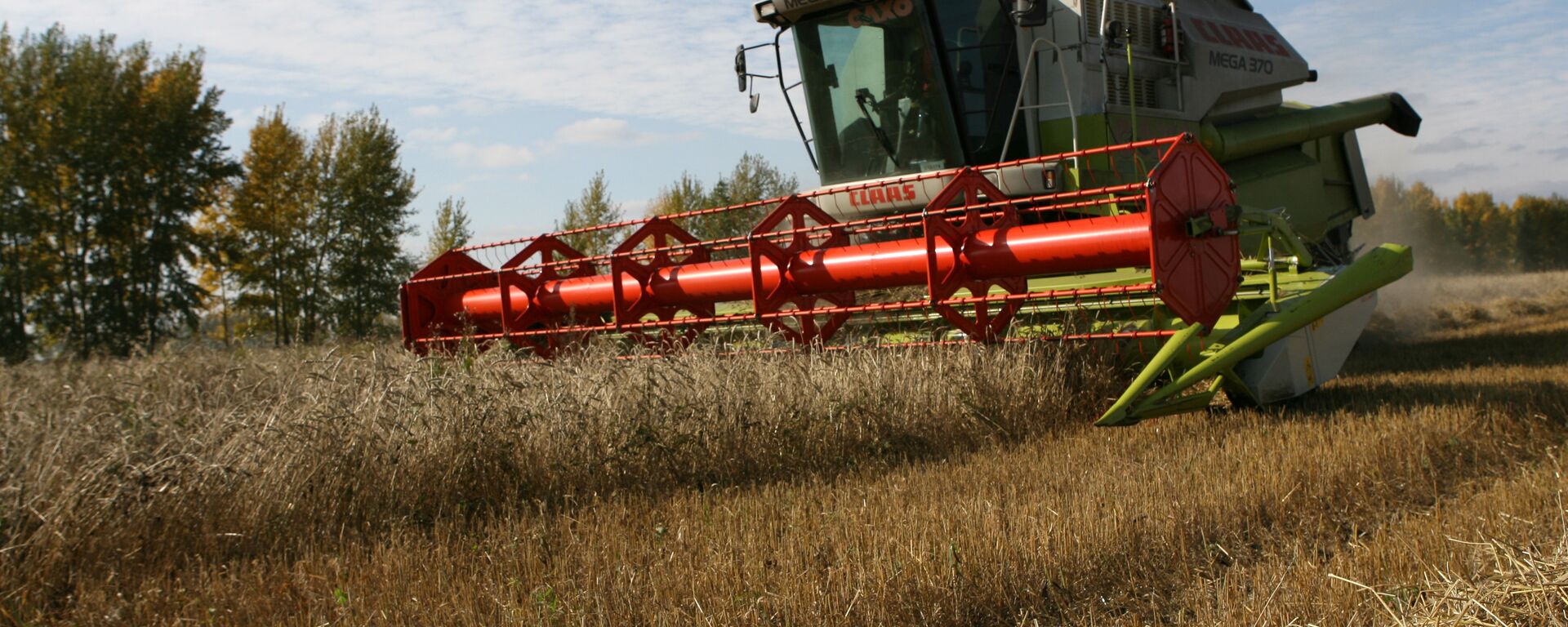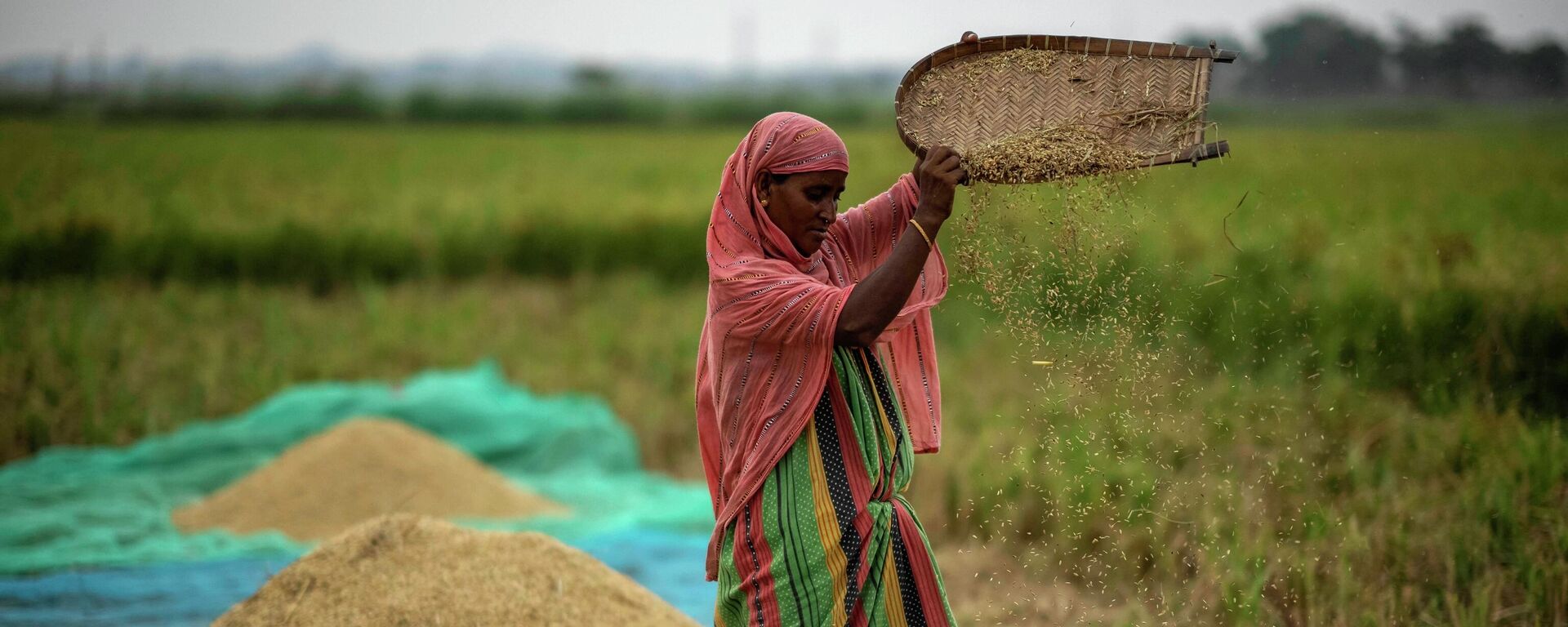https://en.sputniknews.africa/20230817/grain-deal-collapse-risk-of-false-flag-provocations-heats-up-in-black-sea-region-1061414703.html
Grain Deal Collapse: Risk of 'False Flag Provocations' Heats Up in Black Sea Region
Grain Deal Collapse: Risk of 'False Flag Provocations' Heats Up in Black Sea Region
Sputnik Africa
On July 18, Moscow suspended the Black Sea Grain Initiative, signed last year by representatives of Russia, Ukraine, Turkey and the UN, due to the... 17.08.2023, Sputnik Africa
2023-08-17T17:55+0200
2023-08-17T17:55+0200
2023-08-17T19:00+0200
opinion
grain deal
black sea grain initiative
grain
russia
ukraine
ukraine crisis
world food crisis
food security
turkey (turkiye)
https://cdn1.img.sputniknews.africa/img/07e7/08/0a/1061213659_0:160:3072:1888_1920x0_80_0_0_d5067448ef7cf17eb893dd4941d72184.jpg
Turkey is forced to maneuver between pressure from the West, its own vested interests after the collapse of the Black Sea Grain Initiative, and awareness of what aggravation of relations with Russia is fraught with, Dmitry Evstafiev, HSE University professor, told Sputnik.This sums up the extremely complicated balancing act that President Recep Tayyip Erdogan is now undertaking, according to the political scientist. Furthermore, as tensions spiral in the region of the Black Sea, “false flag” provocations could be expected from sides interested in destabilizing the situation, he warned.On Thursday, media reports alleged that Turkey was ready to guarantee unhindered passage through the Bosphorus and Dardanelles for ships with grain coming from Ukraine’s ports.Meanwhile, the news portal Elips Haber, citing its sources in Turkey’s Ministry of National Defense, claimed that "the first ship has already set off along the new corridor." On August 16, the Hong Kong-flagged container ship Joseph Schulte ostensibly left the port of Odessa, where it had been before the start of Russia’s special military operation, and exited the territorial waters of Ukraine. According to reports, referencing the Marine Traffic vessel tracking service, the ship is heading to the Turkish port of Ambarli. According to Ukrainian Deputy Prime Minister Oleksandr Kubrakov, this ship was the first to resort to using this "temporary corridor from the Black Sea ports of Ukraine," announced by Kiev on August 10. When asked whether there was any truth in reports that one of the aforementioned ships that remained in the port of Odessa after the termination of the grain deal had already set sail and would traverse the Bosphorus under passage guaranteed under some kind of "agreement,” sources in Turkiey’s Defense Ministry told local media:'Grain Hub' Ambitions & Vested InterestsThese conflicting reports and developments prove yet again how multifaceted and multilayered Turkiey’s interests in the region are, underlined Dmitry Evstafiev.Firstly, it is absolutely critical for President Recep Tayyip Erdogan to retain the status of the main broker in all matters related to maritime transport in the Black Sea, he underscored. It's not just about grain, but about a large volume of trade that crisscrosses the region. Until recent events, Erdogan was considered to be an “authority” able to guarantee safety of this cargo flow, the political scientist underscored, adding that now, "this is not the case."Secondly, there is the matter of the grain itself. However, recent reports suggest that Kiev, with the obvious support of the United States and a number of NATO countries, primarily Romania, was casting about for alternative ways to transport its grain bypassing the Bosphorus, Turkey, and Erdogan, prompting concerns in Ankara.In this case, Dmitry Evstafiev pointed out, it is not just about Ankara's status as the principal grain hub along the route in question. It also boils down to money, and is about providing for the country’s huge flour milling industry, and maintaining the role as a top flour exporter. This latter, incidentally, is an instrument of the Turkish presence in Africa, where Ukrainian and Russian grain arrives after being ground at Turkish flour mills.But there is also a third, interesting, aspect to it all that Evstafiev drew attention to. And it is not about what is exported from Ukraine, but what is imported there via the Black Sea. Regarding risks for the safety of ships in the Black Sea, they are very high, Dmitry Evstafiev pointed out. While Russia is acting with extreme caution and in accordance with international law, bear in mind that there are other players out there, besides the completely “rogue” Kiev regime, which are interested in destabilizing the situation, he warned, adding:As for what all the recent developments might mean for Russia, it’s too early to say, the expert believes. Until Moscow receives "proper compensation, political or economic," for Turkey’s decision to hand commanders of the nationalist Azov* battalion back to Ukraine in violation of existing agreements, one cannot be sure of any specific scenarios, he suggested. Under the terms of the agreements reached, the Azov leaders were supposed to stay in Turkey until the end of the Ukraine conflict. Looking ahead, Dmitry Evstafiev speculated:*The Azov Battalion is a terrorist organization banned in Russia.
https://en.sputniknews.africa/20230816/moscow-actively-exploring-alternatives-to-grain-deal-with-partners-ambassador-to-ankara-1061375035.html
https://en.sputniknews.africa/20230814/poor-countries-main-victims-of-western-induced-grain-price-crisis-expert-says-1061322758.html
russia
ukraine
turkey (turkiye)
Sputnik Africa
feedback@sputniknews.com
+74956456601
MIA „Rossiya Segodnya“
2023
News
en_EN
Sputnik Africa
feedback@sputniknews.com
+74956456601
MIA „Rossiya Segodnya“
Sputnik Africa
feedback@sputniknews.com
+74956456601
MIA „Rossiya Segodnya“
grain deal, black sea grain initiative, grain, russia, ukraine, ukraine crisis, world food crisis, food security , turkey (turkiye)
grain deal, black sea grain initiative, grain, russia, ukraine, ukraine crisis, world food crisis, food security , turkey (turkiye)
Grain Deal Collapse: Risk of 'False Flag Provocations' Heats Up in Black Sea Region
17:55 17.08.2023 (Updated: 19:00 17.08.2023) Longread
On July 18, Moscow suspended the Black Sea Grain Initiative, signed last year by representatives of Russia, Ukraine, Turkey and the UN, due to the unfulfillment of its conditions. Following the move, the US, Turkey, Ukraine, and neighboring countries reportedly began talks to boost the use of alternative grain export routes.
Turkey is forced to maneuver between pressure from the West, its own vested interests after the
collapse of the Black Sea Grain Initiative, and awareness of what aggravation of relations with Russia is fraught with,
Dmitry Evstafiev, HSE University professor, told
Sputnik.
This sums up the extremely complicated balancing act that President Recep Tayyip Erdogan is now undertaking, according to the political scientist. Furthermore, as tensions spiral in the region of the Black Sea, “false flag” provocations could be expected from sides interested in destabilizing the situation, he warned.
On Thursday, media reports alleged that Turkey was ready to guarantee unhindered passage through the Bosphorus and Dardanelles for ships with grain coming from Ukraine’s ports.
"As far as we know, not a single such vessel has yet departed from Ukraine... But if it arrives, it will pass through the straits," Haber Global TV channel reported, citing sources in Turkey’s Ministry of National Defense.
Meanwhile, the news portal Elips Haber, citing its sources in Turkey’s Ministry of National Defense, claimed that "the first ship has already set off along the new corridor." On August 16, the Hong Kong-flagged container ship Joseph Schulte ostensibly left the port of Odessa, where it had been before the start of Russia’s special military operation, and exited the territorial waters of Ukraine.
According to reports, referencing the Marine Traffic vessel tracking service, the ship is heading to the Turkish port of Ambarli. According to Ukrainian Deputy Prime Minister Oleksandr Kubrakov, this ship was the first to resort to using this "temporary corridor from the Black Sea ports of Ukraine," announced by Kiev on August 10.
When asked whether there
was any truth in reports that one of the aforementioned ships that remained in the port of Odessa after the termination of the grain deal had already set sail and would traverse the Bosphorus under passage guaranteed under some kind of "agreement,” sources in Turkiey’s Defense Ministry told local media:
“From the outset we expressed our position as clearly as possible. There is a grain corridor that has proven its effectiveness and benefits. In almost a year, 33 million tons of grain were delivered to countries in need. We are making efforts to reactivate this 'grain initiative.' Besides this, there is no other work on our part. However, other countries are working on the issue of creating alternative routes. We are closely monitoring this process. An important issue here is to ensure the safe passage of merchant ships through the straits. We are not talking about any problems in connection with the passage of ships through the straits.”
'Grain Hub' Ambitions & Vested Interests
These conflicting reports and developments prove yet again how multifaceted and multilayered Turkiey’s interests in the region are, underlined Dmitry Evstafiev.
Firstly, it is absolutely critical for President Recep Tayyip Erdogan to retain the
status of the main broker in all matters related to maritime transport in the Black Sea, he underscored. It's not just about grain, but about a large volume of trade that crisscrosses the region. Until recent events, Erdogan was considered to be an “authority” able to
guarantee safety of this cargo flow, the political scientist underscored, adding that now, "
this is not the case."
Secondly, there is the matter of the grain itself.
"There is significantly less grain in Ukraine now than there was last year. In general, there is no clarity regarding how much marketable grain can really be there at the moment. However, it is obvious that whatever remains will be dredged out by the Kiev regime to maintain some flow of funds. And so Erdogan wants to be in the loop regarding a certain dominant share in the transportation of this grain,” Dmitry Evstafiev said.
However, recent reports suggest that Kiev, with the obvious support of the United States and a number of NATO countries, primarily Romania, was casting about for alternative ways to transport its grain bypassing the Bosphorus, Turkey, and Erdogan, prompting concerns in Ankara.
In this case, Dmitry Evstafiev pointed out, it is not just about Ankara's status as the principal
grain hub along the route in question. It also boils down to
money, and is about providing for the country’s huge flour milling industry, and
maintaining the role as a top flour exporter. This latter, incidentally, is an instrument of the Turkish presence in Africa, where Ukrainian and Russian grain arrives after being ground at Turkish flour mills.
But there is also a third, interesting, aspect to it all that Evstafiev drew attention to. And it is not about what is exported from Ukraine, but what is imported there via the Black Sea.
"Erdogan is trying to guarantee what is exported from Ukraine. But judging by a succession of hints, statements, and so on, Turkiye’s president would prefer to relieve himself of responsibility for the passage of goods through neutral waters, through the territorial waters of Bulgaria and Romania, to Ukrainian ports," the political scientist emphasized.
Regarding risks for the safety of ships in the Black Sea, they are very high, Dmitry Evstafiev pointed out. While Russia is acting with extreme caution and in accordance with
international law, bear in mind that there are other players out there, besides the completely “rogue” Kiev regime, which are interested in destabilizing the situation, he warned, adding:
“I think that in the very near future we will see several provocations under a false flag, and perhaps even without a 'flag' at all. In this sense, of course, the level of tension in the Black Sea has increased dramatically in recent times.”
As for what all the recent developments might mean
for Russia, it’s too early to say, the expert believes. Until Moscow receives "
proper compensation, political or economic," for Turkey’s decision to hand commanders of the nationalist Azov* battalion back to Ukraine in violation of existing agreements, one cannot be sure of any specific scenarios, he suggested. Under the terms of the agreements reached, the Azov leaders were supposed to stay in Turkey until the end of the Ukraine conflict.
Looking ahead, Dmitry Evstafiev speculated:
"I expect from the Russian side a demonstration of interest in the actions of our partner. But so far [Ankara] has not taken a single real action that could restore lost credibility and trust."
*The Azov Battalion is a terrorist organization banned in Russia.



